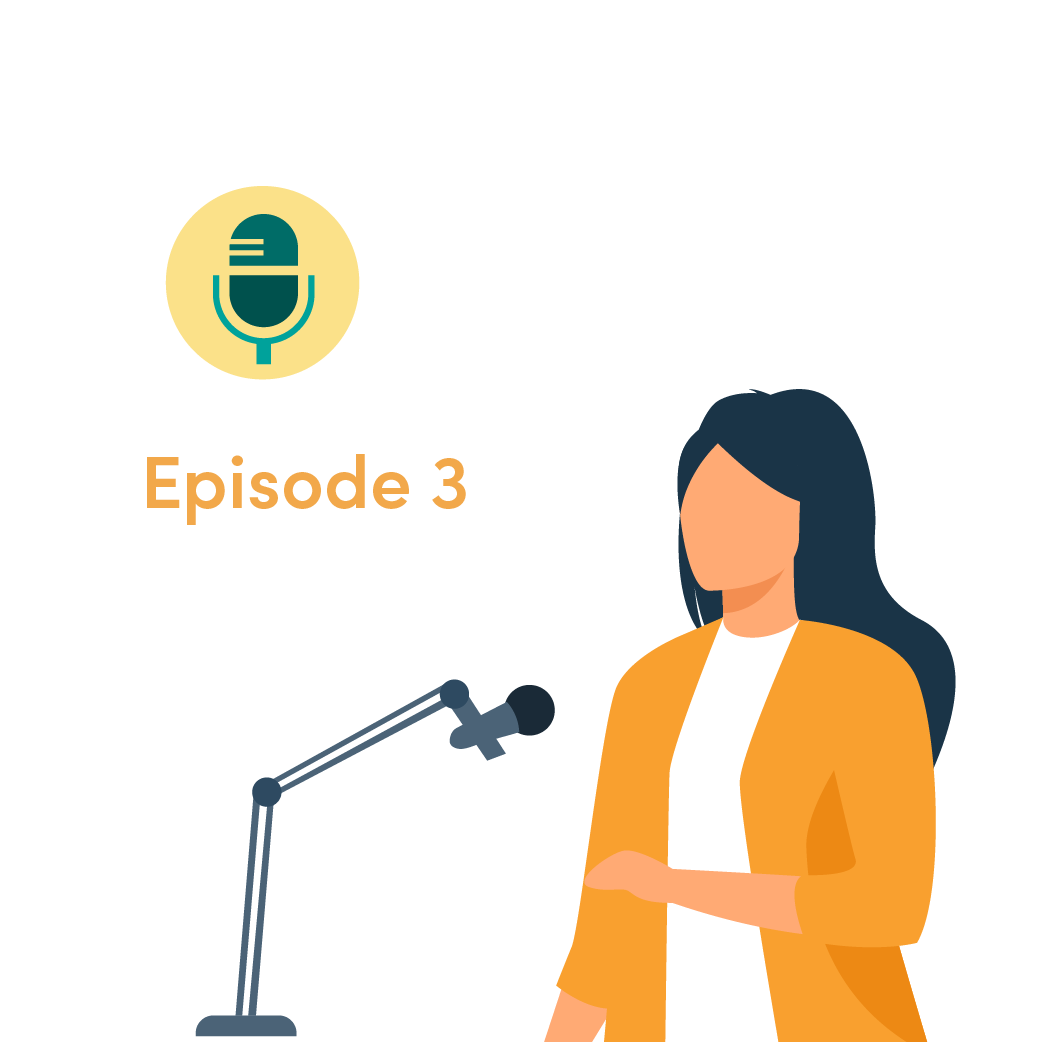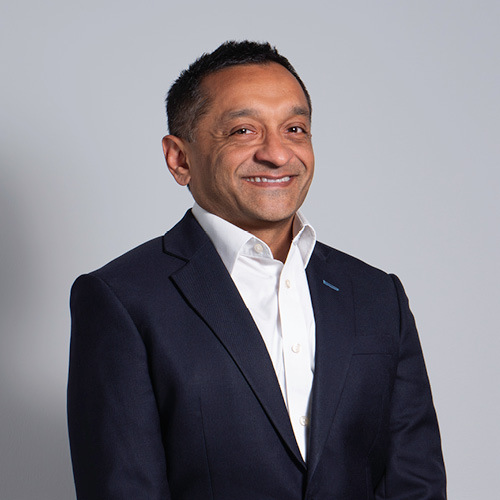How to Leverage Your Diverse Experience in a Senior Marketing Role

Marketing & Communications Leader Series Podcast
Welcome back to EMR's Marketing and Communications Leader Series. In this podcast, we dive deep into the journeys of exceptional senior marketing and communication practitioners. Join us as we take a closer look at how they got started in marketing and the strategies that led them to success in their industries.
Marketing & Communications Leader Series Episode 3: Noreen Biddle Shah
In this episode, EMR's MD Tom Brockton interviews Noreen Biddle Shah, former Head of Marketing & Communications at Numis, who recently joined Carne Group as their Chief Marketing and Communications Officer (CMCO). Find out more about Noreen's path to success, how she balances her work whilst acting as the Non-Exec Director position at Solent University, as well as the founder of Reboot, an organisation supporting ethnic minorities in financial and professional services workplaces.
How can a diverse background benefit your marketing and communications career?
Embarking on a career journey after graduating from university often involves exploring diverse roles and opportunities. Many professionals like Noreen, who obtained a degree in communications, find themselves navigating through different avenues within the marketing and communications landscape.
From internships to entry-level positions, each experience offers valuable insights and skill-building opportunities. Whether working in an agency or in-house, you can gain firsthand knowledge of various aspects of marketing and communications. This diverse exposure will not only hone your skills but also shape your understanding of industry dynamics and trends. Through perseverance and a willingness to embrace new challenges, you can carve out unique career paths filled with growth and development.
Noreen's journey exemplifies the importance of adaptability and continuous learning in crafting a successful career in marketing and communications. She honed her skills during her tenure at State Street, where she held roles in corporate communications and marketing, learning from industry leaders and gaining insights into global marketing strategies. At Numis, Noreen spearheaded a successful rebranding initiative, leveraging her expertise to shape the company's brand identity and communication strategies. In her current role as Chief Marketing and Communications Officer at Carne Group, she continues to drive innovation and excellence, bringing a wealth of experience and strategic vision to the organisation's marketing endeavours.
How to approach strategic decision-making in marketing leadership?
Using a blend of data-driven analysis and strategic foresight is a great approach to decision-making.
By harnessing insights and collaborating with key stakeholders, you can ensure that your decisions align with the organisation’s goals and resonate with the C-suite. This strategic mindset, coupled with a deep understanding of market dynamics, will be instrumental in driving impactful marketing initiatives throughout your career.
Why is a versatile work experience important in marketing and communications?
In today's ever-evolving business landscape, professionals are often required to navigate through diverse experiences that shape their career paths.
Noreen's journey exemplifies the importance of embracing versatility, adaptability and resilience in your career. From navigating crisis communications to working in diverse teams, you can gain invaluable skills and perspectives by taking on various roles throughout your career. This will in turn pave the way for your success in marketing and communications leadership.
How to balance the demands of senior roles with your personal life?
Noreen candidly discusses the challenges of juggling multiple roles, including her non-executive directorship and her commitment to Reboot while also being a mother. To maintain work-life balance, she emphasises the importance of passion, efficiency, and prioritisation and establishing clear boundaries.
Some days, yes, it gets too much, but then I have to go back and try and re-prioritise or just say... “not a superwoman, I can't do it, apologies”... But I had a very honest conversation and, in response, they were fantastic and said how can we make it work for you. So we found a really great compromise and off I go to make it work.
Empowering advice for aspiring marketing leaders
Drawing from her own experiences, Noreen offers invaluable advice for aspiring marketing and communications leaders.
From overcoming self-doubt to leveraging individual strengths, marketing professionals need to embrace their unique journey and pursue continuous growth.
By fostering a supportive network, seeking mentorship, and seizing every opportunity for learning and development, aspiring leaders can chart a path to success in today's competitive landscape.
Listen to the full interview with Noreen Biddle Shah above, and follow EMR on LinkedIn to hear about future podcast episodes.
If you want to listen to any of the other episodes, check them out here:
- Episode 1 with Bee Patel, Global Director of Brand & Communications at AlphaSights on How to Become a Successful Leader Within The Marketing and Communications Industry;
- Episode 2 with Emma Hill, Group Brand & Marketing Director at Cardano on How to Navigate a Marketing Career: From a Junior Role to a Directo
- Episode 4 with Dominic Elliott on How to Advance Your Career in Communications Leadership?
- Episode 5 with Jen Barham on How to Become a Great Marketing Leader through Self-Discovery?
Let EMR help you with your executive search or recruitment needs
Ready to take your career to the next level? Check out senior appointments resources or browse our senior marketing vacancies.
Alternatively, find out more about EMR’s senior and executive search recruitment expertise across marketing, digital and communications.
Read about Are you threatening your marketing career before it’s even begun?
Ready to take your career to the next level? Check out senior appointments resources or browse our senior marketing vacancies.
Alternatively, find out more about EMR’s senior and executive search recruitment expertise across marketing, digital and communications.
Read about Are you threatening your marketing career before it’s even begun?
Sign up for more insights

Related jobs
Salary
Up to £65000 per annum
Location
London
Job Type
Permanent
Discipline
Media Relations & PR
Seniority
Executive
Salary
£60,000 - £79,000
Sector
Professional Services
City
London
Description
EMR are working with a leading legal firm based in the City of London who are seeking to hire a PR Specialist.
Reference
PRM9812_1745830425
Expiry Date
01/01/0001

Author
Mark Childs
Author
Mark ChildsSalary
Negotiable
Location
Potters Bar, Hertfordshire
Job Type
Fixed Term Contract
Discipline
Brand Marketing
B2B
Seniority
Manager
Salary
£45,000 - £59,999
Sector
Property & Construction
City
East of England
Description
We are seeking a Marketing Manager to join a leading residential developer on a 12-18 month fixed-term contract.
Reference
PR/132623_1745589541
Expiry Date
01/01/0001

Author
Mal Galuszczynska
Author
Mal GaluszczynskaSalary
Bonus
Location
City of London, London
Job Type
Permanent
Discipline
Event Marketing
Seniority
Assistant
Salary
£30,000 - £44,999
Sector
Financial Services
City
London
Description
Events Coordinator
Reference
RPD_1744777358
Expiry Date
01/01/0001

Author
Ronak Patel
Author
Ronak PatelSalary
£60000 - £65000 per annum
Location
London
Job Type
Permanent
Discipline
Media Relations & PR
Seniority
Manager
Salary
£60,000 - £79,000
Sector
Consultancies
City
London
Description
EMR are working with a boutique PR & Communications agency specialising in advising and supporting emerging start ups. They are looking to hire a Senior Account Director.
Reference
PRAD9076_1744626156
Expiry Date
01/01/0001

Author
Mark Childs
Author
Mark ChildsSalary
£38000 - £430000 per annum
Location
London
Job Type
Permanent
Discipline
Media Relations & PR
Work From Home
Work From Home
Seniority
Manager
Salary
£125,000 +
Sector
Consultancies
City
London
Description
EMR are working with a boutique PR & Communications agency operating in the start up space, who are looking to hire a PR Account Manager.
Reference
PRAM2319_1744625825
Expiry Date
01/01/0001

Author
Mark Childs
Author
Mark ChildsSalary
Up to £60000 per annum
Location
London
Job Type
Permanent
Discipline
Corporate Communications
Internal Communications
Media Relations & PR
Work From Home
Work From Home
Seniority
Manager
Salary
£60,000 - £79,000
Sector
Consultancies
City
London
Description
EMR are working with a leading consulting firm, providing audit, tax, accounting and business advice to organisations in the UK who are seeking to hire an experienced Communications Manager.
Reference
CM02321_1744625440
Expiry Date
01/01/0001

Author
Mark Childs
Author
Mark ChildsSalary
£45000 - £50000 per annum
Location
London
Job Type
Permanent
Discipline
Marketing (general)
Seniority
Head of
Salary
£45,000 - £59,999
Sector
Leisure Travel & Sport
City
London
Description
I'm working exclusively with, an independent hospitality group known for its vibrant live music venues and great nights out. They're now looking to appoint a Head of Marketing & Communication
Reference
PR/132619_1744386751
Expiry Date
01/01/0001

Author
Rebekah Cramp
Author
Rebekah CrampSalary
£60000 - £70000 per annum + Benefits
Location
City of London, London
Job Type
Fixed Term Contract
Discipline
Marketing (general)
Seniority
Manager
Salary
£60,000 - £79,000
Sector
Financial Services
City
London
Description
Event Manager
Reference
RPP_1744385893
Expiry Date
01/01/0001

Author
Ronak Patel
Author
Ronak PatelSalary
£38000 - £45000 per annum
Location
City of London, London
Job Type
Permanent
Discipline
Event Marketing
Seniority
Executive
Salary
£45,000 - £59,999
Sector
Professional Services
City
London
Description
I'm working in partnership with one of the UK's most respected barristers' chambers, which is seeking to appoint an experienced Events Executive to join its established Marketing team.
Reference
PR/132618_1744385275
Expiry Date
01/01/0001

Author
Rebekah Cramp
Author
Rebekah CrampRelated posts

Teaser
Hiring adviceContent Type
ArticlesPublish date
04/30/2025
Summary
The landscape of hiring a marketer has changed. A solid job spec isn’t the be all and end all anymore. Today’s marketing professionals are making career moves with more intention than ever. Marketers

Teaser
Hiring adviceContent Type
ArticlesPublish date
04/30/2025
Summary
When it comes to hiring the right marketing professionals, getting the job description right is crucial. Knowing how to write a job description means you’re doing more than just list responsibilities

Teaser
Hiring adviceContent Type
ArticlesPublish date
04/14/2025
Summary
Three days in the office. No change in salary. Hybrid working is evolving. What does that mean for employees and employers in 2025?What was once presented as a benefit is now a source of tension. Acro

Teaser
Hiring adviceContent Type
ArticlesPublish date
03/31/2025
Summary
Looking Back at 2024For much of 2024, marketing recruitment across the UK has contended with a series of setbacks. The latest data from the Office for National Statistics showed a steady decline in

Teaser
Hiring adviceContent Type
ArticlesPublish date
03/20/2025
Summary
Attracting top-tier marketing talent is challenging. The best candidates often have multiple options, allowing them to pick out a company they would feel proud to work for. This is where the power of

Teaser
Hiring adviceContent Type
ArticlesPublish date
03/20/2025
Summary
Hiring a marketing manager is no small task. Marketing plays a pivotal role in any business, and the right hire can send both brand perception and revenue on an upward trajectory. From campaign execu

Teaser
Hiring adviceContent Type
ArticlesPublish date
03/05/2025
Summary
With Employer National Insurance (NI) contributions set to rise in 2025, businesses must rethink their hiring strategies, particularly in marketing, where agility and cost-efficiency are key. Hiring d

Teaser
Hiring adviceContent Type
ArticlesPublish date
02/28/2025
Summary
Does your business need expert marketing leadership but isn’t ready for a full-time hire? A fractional Chief Marketing Officeer (fractional CMO) could be the perfect solution. Offering strategic guid

by
Mal Galuszczynska

Teaser
Industry newsContent Type
ArticlesPublish date
01/30/2025
Summary
In recent years, consumer expectations have shifted significantly, with individuals increasingly seeking brands that embody authenticity, transparency, and social responsibility. This change in consum

Teaser
Industry newsContent Type
ArticlesPublish date
01/24/2025
Summary
AI and automation are no longer optional extras for marketers, they’ve become essential tools in navigating today’s competitive marketplace. As these technologies redefine the standards of efficiency,
Recently viewed jobs
